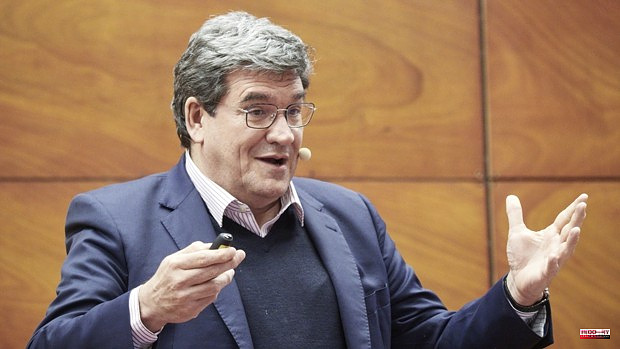After the meeting held this past Monday between the Government and the self-employed associations, which served to bring positions closer together on the new contribution system for employed workers and leave the agreement for judgment, the Minister of Inclusion, Social Security and Migration , José Luis Escrivá, transferred a transitory proposal for the amount of the fees that workers must pay monthly in the next three years. Specifically, this document proposes an increase of 28% over three years in the maximum fee for the self-employed who have net income above 6,000 euros per month in the highest bracket. And a gradual reduction of the minimum quota in this triennium of 25% for those who enter less than 670 euros per month.
Specifically, according to official data handled by the Ministry of Social Security at this time, workers with net income below 670 euros per month contribute an average of 307 euros per month. This figure would be reduced by 25% at the end of the transitional period, in 2025, to stand at 230 euros. For this group, a quota of 245 euros would be set in 2023 and would be reduced again to 237 euros in 2024. After the full application of the measure, the savings would amount to 77 euros per month.
At the other end of the table, the self-employed with higher incomes, above 4,050 euros per month, currently contribute an average of 461 euros, according to the Ministry itself. This group of self-employed would see the payment of contributions increase between 15% and 28% more in 2025 compared to now.
Specifically, by including a new income step, the resulting section of the self-employed with income between 4,050 and 6,000 euros per month would currently pay an average of 461 to 530 euros (15%). That is, 69 euros more per month. For this group, a quota of 420 euros is foreseen in 2023 and 445 euros in 2024.
While those who obtain net returns above 6,000 euros per month, this increase will be 28%, going from those 461 euros to 590 euros of fee in 2025, that is, 129 euros more per month compared to the current average. These workers would pay, according to the Government's proposal, a fee of 500 euros in 2023 and 530 euros in 2024.
In this way, the first four tranches, those that range from net returns of less than 670 euros to less than 1,300 euros, will see a reduction in their fees between 2023 and 2025, from between 15 euros, in the case of the first tranche, to 1 euro, in the fourth tranche. While sections 5 and 6, for those self-employed workers who earn between 1,300 euros and less than 1,500 euros, and between 1,500 euros and less than 1,700 euros, respectively, will maintain a quota of 294 euros over the three years. .
As of section 7, for the self-employed who earn more than 1,700 euros onwards, the Social Security proposal contemplates increases in contributions until 2025. In this way, a self-employed person who has net income of between 1,700 euros and less than 1,850 euros, in section seven, will pay a fee of 310 euros in 2023, which will rise to 320 euros in 2024 and end at 350 euros in 2025.
The increase for sections from 7 to 15 will range between 40 euros and 110 euros. The sections in which the quota increases the most over these three years are 13 and 14. In section 13, for the self-employed with net income above 3,620 euros and less than 4,050, the quota starts in 2023 in 390 euros, goes to 400 euros in 2024 and stands at 490 euros in 2025, 100 euros more in total.
For section 14, with income above 4,050 euros and less than 6,000 euros per month, the reform of the contribution system starts with a quota of 420 euros in 2023, continues with 445 euros in 2024 and ends at 530 euros in 2025, 110 euros more in three years. For section 15, the progressivity will be an escalation of 90 euros, between 500 euros in 2023, 530 euros in 2024 and 590 euros in 2025.
With these figures on the table, there could still be nuances on the tables related to 2023 and 2024, in the aspect of transitory, although sources close to the negotiation confirm that it would end up reaching the final proposal of 2025 that the executive gave to meet the social agents this past Monday.
In addition, they recognize since the month of negotiation that although there is no rush before the Brussels exam that the Government plans to overcome after the approval of the legal framework of the reform of the Special Scheme for Self-Employed Workers in the Council of Ministers on Monday, yes that They recognize the need to clear up this element committed to the European Commission in the Recovery Plan as soon as possible as compensation for the arrival of reconstruction funds. The arrival of 6,000 million euros from the third tranche corresponding to Spain will depend on this measure and other milestones in pension matters, the second this year after the release of the first 12,000 million for the milestones fulfilled in the second half of last year.









